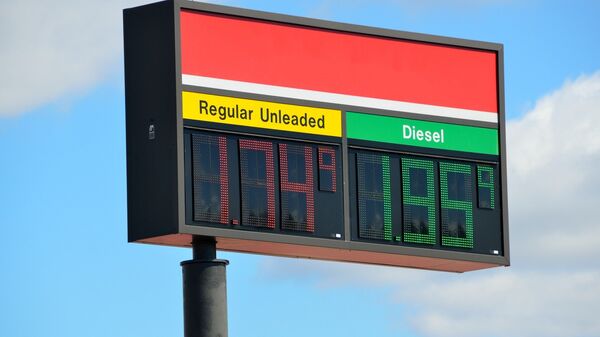The findings are drawn from a peer-reviewed study published in scientific journal Nature Energy, and indicate that between 2003 and 2015 there was a strong correlation between gasoline consumption and lowered taxes or raised subsidies. While two thirds of countries oversaw an increase in taxes or decrease in subsidies over the period, this was offset by the remaining third, which pursued fossil fuel incentives to such a degree, it produced a net drop in petrol taxes across the group.
The average tax on petrol in 157 nations fell 13% from 2003 to 2015, according to analysis in @NatureEnergyJnl https://t.co/GZvbhAn4jA pic.twitter.com/aRtJIxIvrW
— Steve Hurst (@hurst_sj) January 10, 2017
The calculations used retail gasoline price data from 2003 as a benchmark and then looked at which countries had raised or lowered gasoline taxes or subsidies since 2015.
Following the 2015 Paris Agreement on Climate Change, 196 nations vowed to cap global warming at under two degrees Celsius (3.6 degrees Fahrenheit), an objective scientists state is achievable only if the world economy rapidly adopts cleaner energy policies — although the International Energy Agency says the reduction pledge is insufficient to meet that goal.
New data evaluate taxes and subsidies in gasoline markets, showing mixed results in implementing effective policy https://t.co/yY8lkxK3ue pic.twitter.com/SMYoYrVz4y
— Nature Energy (@NatureEnergyJnl) January 9, 2017
A mere 1 degree C (1.8 F) rise in global temperature above the pre-industrial average has produced a huge upsurge in heatwaves, drought, flooding and storms, driven by rising seas.
Climate experts, as well as organizations such as the International Monetary Fund, UN climate science panel and World Bank have long argued in favor of governments creating incentives for consumers and businesses to transition to clean energy alternatives. However, few if any such incentives have materialized since — in fact, fossil fuel subsidies remain titanic — at around half a trillion dollars globally — of which around US$333 billion is consumer-based.
@BMWi3guide Incentives that make EVs cheaper than fossil fuel cars is key!
— Stian Mathisen (@stianmat) January 10, 2017
The worst offenders were oil-exporting countries such as Algeria, Angola, Nigeria and the Arab Gulf states.
Saudi Arabia for instance, continually discounted pump prices over the period, from — US$0.09 a liter in 2003 to —0.40 in 2015, the biggest regression among the top 20 petroleum-based CO2 emitters.
The US, the world's largest oil consumer, also drew researchers' ire, as the country hasn't raised federal taxes since 1993.
China emerges as green reformer in vast petrol tax study | Climate Home — climate change news https://t.co/J17vjGb3Hd
— Bart Bruneel (@bartbruneelbart) January 10, 2017
Conversely, China was noted as a "saint among the sinners" for its rapid transition to clean energy, and "significant" reforms around emissions, offsets and the like.
In absolute terms, Singapore ended up with the highest tax, at US$1.36 per liter. The Netherlands, Italy, UK and Germany also charge tax over a dollar per liter.


